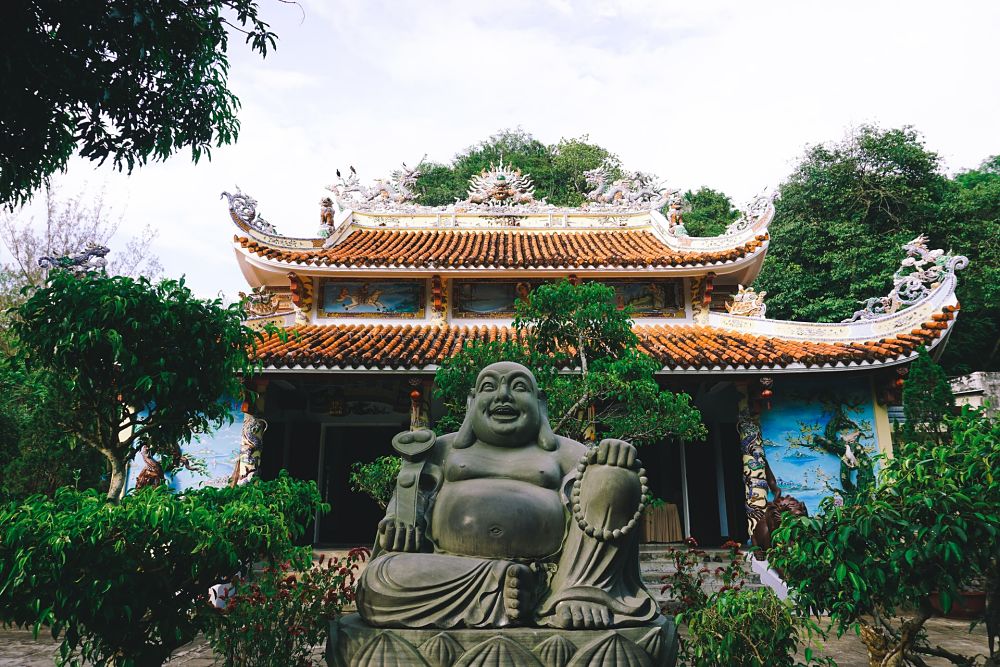Vietnam is booming!
Many foreigners new to the country find the culture difficult to navigate.
Despite Vietnam adopting an outward-looking economic policy in the 80s, it has remained on the fringes of the global economy; until now.
The recent explosion of interest and investment in the country, means more and more foreigners are visiting Vietnam and doing business with the Vietnamese.
So, to help those foreigners new to the country, we're going to outline 3 aspects of the business culture that really need to be understood.
Understanding these areas will help you to adapt your style and gain the trust of your Vietnamese colleagues.
Ready? Let’s go!
If you're interested in Vietnam,
CLICK the LINK at the end of the page to our free CULTURE GUIDE!
1. Vietnamese Business Culture Emphasises Harmony.
Although Vietnam is officially an atheist country, historic Chinese rule and the influence of Confucianism and Taoism continue to shape local beliefs.
To really get under the skin of Vietnamese culture, you’ll do well to read up on these belief systems as they pervade many areas of Vietnamese culture.
One of the key influences relates to ‘harmony,’ with both Confucianism and Taoism stressing the importance of harmony in maintaining social structures.
You will find that great value is placed on harmony in both business and social settings.
As such, you’re unlikely to see people argue with each other in public, or to voice strong opinions which might make other people feel uncomfortable.
Even if someone is upset or frustrated by something, you are likely to see they keep a stoic expression in an attempt to maintain harmony.
Something that often confuses people from Western cultures is that the Vietnamese may even go as far as to smile when upset. This can be particularly confusing for Westerners leaving a meeting, thinking everything is ok, and later realising that this wasn’t the case.
It’s really important that you bear harmony in mind when working in Vietnam.
Becoming angry with people or demonstrating frustration will cast you in a poor light and lose the respect of your peers.
Furthermore, don’t take smiles or stoic expressions to indicate that your Vietnamese peers are happy as this may not be the case.

If you're managing Vietnamese staff, then you need to learn how to handle people with care.
Learn more in our Guide to Vietnamese Management.
Photo by Andreea Popa on Unsplash
2. Vietnamese Business Culture is Hierarchical.
Another influence of Confucianism relates to hierarchy.
Confucianism places great value on relationships as a means to maintain stability and harmony.
Relationships between parent and child, subject and ruler, husband and wife, friend and friend, and older siblings and younger siblings are given particular emphasis. From an early age, children are taught to be respectful to those who are older or higher in status.
You will find, to this effect, that the Vietnamese tend to demonstrate great loyalty to individuals within their social group.
In a business setting, this translates fluidly into defined hierarchical structures, with clearly defined roles and manager / subordinate expectations.
It’s important when working in Vietnam, that you respect hierarchy and that you consider the impact of hierarchy on your business plans.
When it comes to decision making, for example, you should build in extra time for the decision to be escalated to the appropriate people.
As another example, if you are managing a team, then be prepared to be fairly directive in your management style. Consensual managers may well be perceived as lacking sufficient management skills.

If you want to understand the Vietnamese mindset, you have to explore the influence of religion.
Click here to learn about Buddhism and its teachings.
Photo by Jack Young on Unsplash
3. ‘Face’ is an important part of Vietnamese culture.
Another characteristic of Vietnamese culture is the importance placed on reputation or ‘face’ as it’s otherwise known.
Complementing the value placed on harmony is the importance placed on protecting one’s own face, or the face of others.
The Vietnamese make great efforts to treat each other with respect. As such, they avoid undermining people or criticising them in public.
They may also endeavour to ‘give’ face to others. This may be by way of praising someone in public or complimenting their work.
It’s not uncommon for Westerners working in Vietnam to learn about face the hard way.
Individuals may, for example, question someone or voice a disagreement. It’s not until later down the line when their counterpart has clearly become cold towards them and withdrawn their cooperation that the individual realises they may have caused offence.
It’s essential that you always consider face when interacting with your Vietnamese counterparts. If you want to raise an issue, then raise it as a group concern to avoid your concerns being construed as blame or criticism.
Blog Image by Davidlohr Bueso

